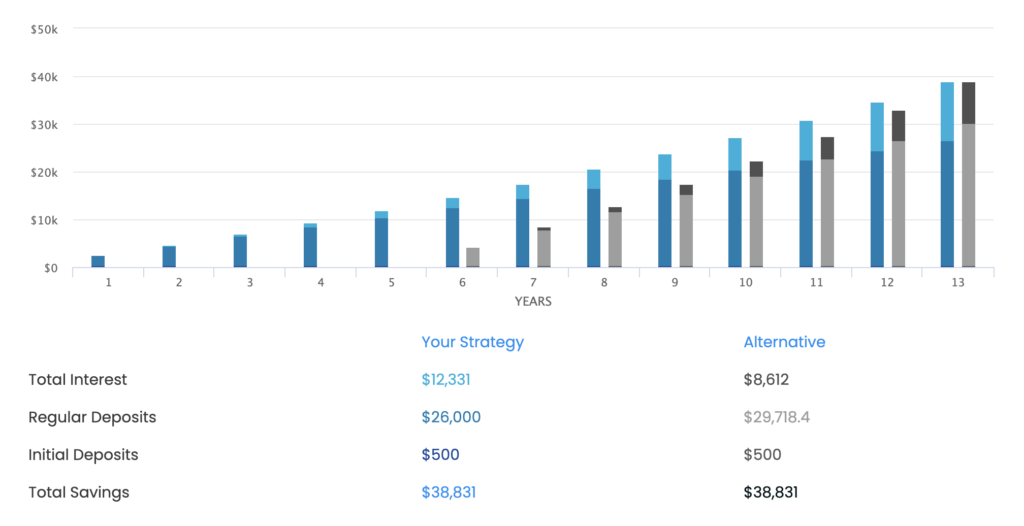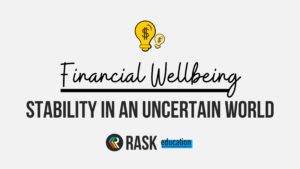Are you sitting back and thinking ‘how do I invest for my children in Australia?’ This video and short article explains how to invest in shares or ETFs for kids.
The video will answer:
- Is investing for children going to impact my tax return?
- Should I invest in shares, Vanguard, ETFs, insurance bonds or something else for my children?
- How Owen and Kate from The Australian Finance Podcast would do it
- The questions to ask yourself before investing and who to ask the hard questions
Video: how to invest for children
What to ask yourself before investing for your kids:
- Firstly work out your goal: is the money going to help with future expenses like taking time off work, school fees, a long-term family fund or to help your kids with their house deposit? How long you have to invest will impact what you should in invest in. If you have less than 3 years to be invested, you might consider other options (e.g. mortgage offset account, high-interest savings account, etc.).
- Look at some different compounding scenarios using our compound interest calculator. Set the savings amount you can achieve (e.g. each month) and the timeline you have to work with. For example, if you say to yourself ‘in 10 years my child will turn 18’ — select 10 years for compounding in our calculator. See our tutorial: what is compound interest? Remember, money for investing in growth style assets (e.g. shares, property, ETFs, etc.) should be invested for at least 5 years.
- Talk to an advisor/accountant about tax/whose tax file number (TFN) you should put down into your share brokerage account. This matters. A lot.
- In addition to a brokerage account, you might consider using insurance bonds, a robo-advisor, a mortgage offset account, or simply buying shares in your own name (or a partner’s name). Just make a note of the child’s ‘future money’ or separate the money into another account.
Example:
Will and Georgia want to invest in some Vanguard, Betashares, ETF Securities and iShares exchange-traded funds (ETFs) for their kids, Ryan and Sarah. Currently, Will is working and earning $95,000 as an electrician. Georgia works two days per week as a freelance journalist earning $40,000. Both kids are under 5 years of age, so Bill and Georgia plan to invest for at least 13 years. And because they are investing for the long-term they believe they can take some risk with money and use low-cost ETFs and shares for compounding growth.
Using the Rask Education compound interest calculator (see below) and after getting expert tax advice, Georgia opens an online brokerage account, in her name and with $500 to get started, to invest in ETFs and shares. They commit to saving — and investing — $500 every three months (i.e. quarterly).

After 13 years of compounding, Will and Georgia have $38,831 set aside. After 13 years they could sell the shares (and may be required to pay capital gains tax). However, even if they pay tax — at least they’ll have $38k, less tax, to offer their kids, if they still like them…
Hypothetically, if Will and Georgia waited 5 years to get started they will have to save $928.70 per quarter — an additional $3,718.40 (equivalent to 2.75 years of extra saving) — just to make up for the lost compounding.
Lessons:
- Start now
- Consider how long you have to invest
- Talk to your accountant about tax to get set up correctly
Important notes: we’ve excluded brokerage fees, costs, inflation and taxes. We’ve also assumed a 6% yearly rate of return, with all returns reinvested for maximum compounding.
1 bonus tip for investing for children
- Make this process as automated if possible. Remember, small bits invested lots of times (e.g. every 3 months over 18 years) really adds up over the long run. See our tips on investing apps for automating your finances.
If you’re interested in learning more about investing, see how following helpful articles (or take our online — and totally free — investing and finance courses!):
- How do brokerage accounts work & are they safe?
- 2 ways to buy shares & ETFs in Australia
- List of Australian share brokerage providers



